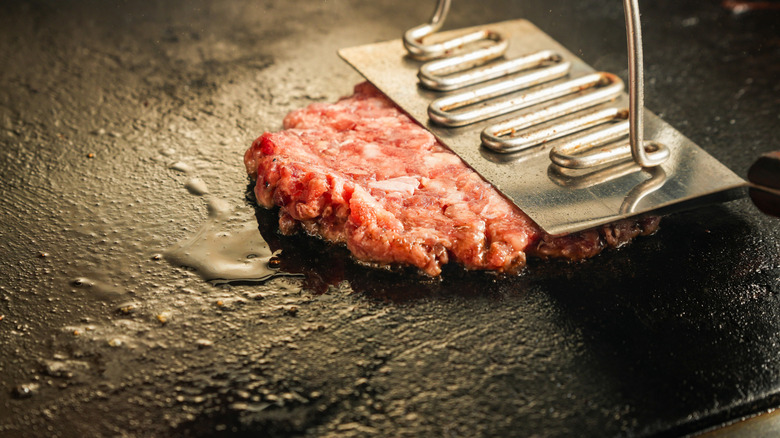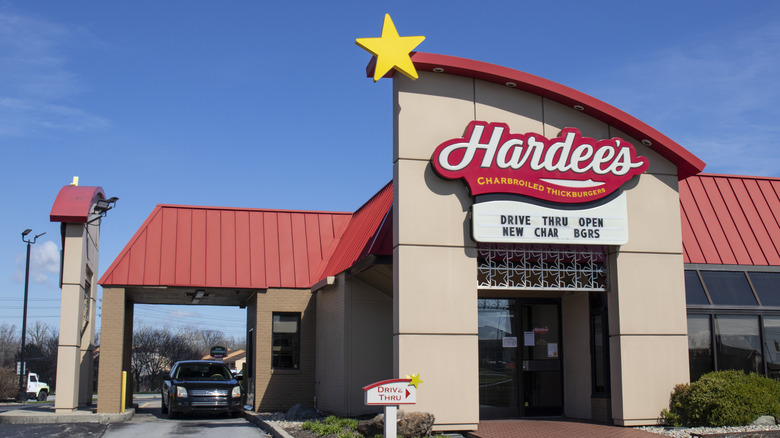The Reason This Once-Popular McDonald's Competitor Had To Sell
In the world of fast food, no brand is more powerful or prolific than McDonald's. The golden arches are associated with near global domination in the fast food space, and even with colossal failures like the "Arch Delux" burger costing the company over $100 million, the chain has continued to grow and stay profitable. But McDonald's was not always the juggernaut we know today. In fact, in the mid to late 1900s, the franchise was threatened by several upstarts. One of its main competitors was Burger Chef, a company with the same efficient, professional approach that first made McDonald's popular.
Beginning in Indianapolis in the 1950s, Burger Chef was a detail-oriented company that aimed to take the popular burger and fries format and elevate the quality and experience. But with any successful company, mergers or acquisitions are inevitable, with one of the most recent examples being the combination of IHOP and Applebee's. Burger Chef was no exception to this fact, selling to General Foods Inc. for over $16 million in 1968, per The New York Times. It was this sale that ultimately led to the downfall of the growing burger giant. A little under six years after the merger, General Foods Inc. and Burger Chef saw a roughly $83 million loss. Struggling financially and rapidly losing money after trying to rebrand the restaurant, General Foods Inc. sold Burger Chef in 1981 to Hardee's/Carl's Jr. for $44 million.
Changing hands caused the slow decomposition of Burger Chef
One of the things that influenced Burger Chef's early success was its culture. According to the book "Flameout: The Rise and Fall of Burger Chef," franchise owners for the company would all have to make a pilgrimage to the Burger Chef headquarters in Indiana to learn everything from food prep to stocking to the best hiring practices. The burger franchise also made new employees take a personality test to ensure they were in line with company values and standards.
Additionally, the company's commitment to innovation was another strength. The chain influenced the industry on a deep level, introducing the "Triple Threat" deal where guests could buy a combo of fries, a burger, and a drink for just 45 cents. This innovation and commitment to quality is what Burger Chef lost under General Foods Inc. In this vein, the company was forced to try and revive failed projects and was mismarketed to the point of obscurity. This had a deep effect on General Foods Inc., with the company disclosing that, of its losses in 1971, the majority were associated with the fast food chain. This event led to the early retirement of Arthur E. Larkin Jr., CEO of General Foods Inc., telling the New York Times, "Burger Chef was the event" that led to his decision. Consequently, the Burger Chef Story is now an important reminder about company culture and its importance to business success.

